Events Archive
Event Archive
Abbey Speaker Series: Intellectual Diversity in Higher Education
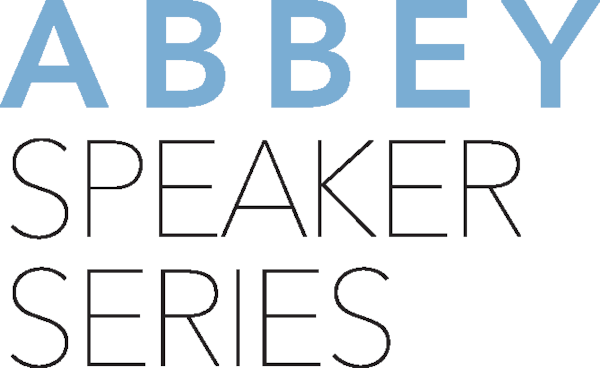
Should universities make a greater effort to promote intellectual diversity? What exactly does intellectual diversity entail? Is intellectual diversity always desirable?
On October 6th at 5:30 p.m., the UNC Program for Public Discourse in conjunction with the General Alumni Association hosts a hybrid Abbey Speaker Series event exploring intellectual diversity on campus. Come hear a panel discussion with teacher-scholars who approach this charged topic from different perspectives.

Rob Henderson is a doctoral candidate in psychology at the University of Cambridge, where he studies as a Gates Cambridge Scholar. He is a faculty fellow at The University of Austin, where he also serves on the board of advisors. Henderson obtained a B.S. in psychology from Yale University and is a veteran of the U.S. Air Force. Along with his popular Substack newsletter, his writing has appeared in the New York Times, Wall Street Journal, and Quillette, among other outlets. His forthcoming memoir will be published by Gallery Books.
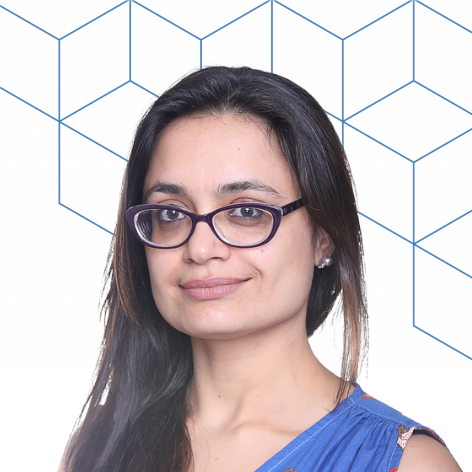
Amna Khalid is an associate professor of history at Carleton College. Having grown up under a series of military dictatorships in Pakistan, she has a strong interest in censorship and free expression. Khalid writes frequently about academic freedom, free speech, and campus politics. This year she is a fellow at the University of California National Center for Free Speech where she is working on a joint project on anti-critical race theory legislation as it pertains to higher education. Combining her interest in free expression and history, she hosts the podcast "Banished," about what happens when people, ideas, and works of art come into conflict with our modern sensibilities.

Michael S. Roth became the 16th president of Wesleyan University in 2007. He has overseen the launch of numerous academic programs at Wesleyan such as the Allbritton Center for the Study of Public Life and the Shapiro Center for Writing. An author and curator, Roth describes his scholarly interests as centered on “how people make sense of the past.” His newest book, Safe Enough Spaces: A Pragmatist’s Approach to Inclusion, Free Speech, and Political Correctness, addresses some of the most contentious issues in American higher education, including affirmative action, safe spaces, and questions of free speech. Roth continues to teach undergraduate courses and has offered MOOCs through Coursera.
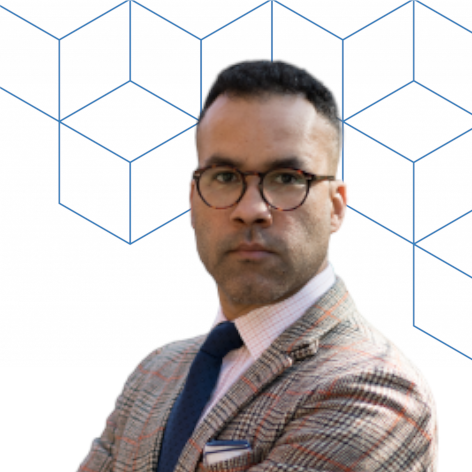
Event Moderator
William Sturkey is an associate professor in the Department of History at UNC-Chapel Hill, where he teaches classes on modern American history. He is the author of Hattiesburg: An American City in Black and White and the co-editor of To Write in the Light of Freedom: The Newspapers of the 1964 Mississippi Freedom Schools. His other writing has appeared in venues such as The Atlantic, Washington Post, New York Times, and Southern Cultures.
Date: October 6, 2022
Times: 05:30 pm – 07:00 pm
Audience: Public Event
Venue:
Tackling Wicked Problems through Deliberative Engagement: How to Elevate our Community and Classroom Conversations in Hyper-Partisan Times
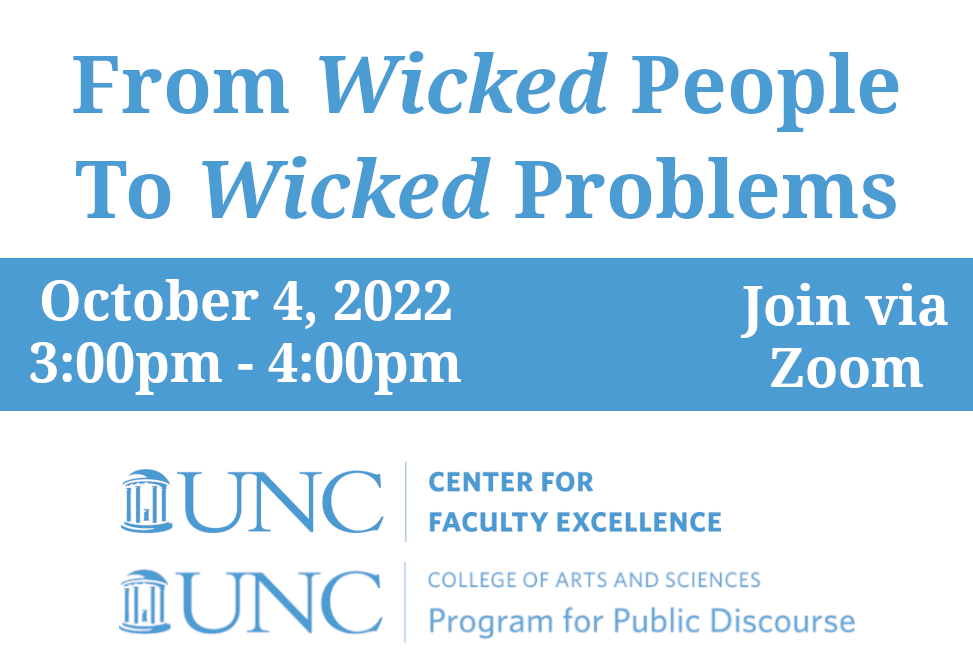
The Center for Faculty Excellence and the Program for Public Discourse are excited to present a new workshop series aimed at engaging with “Wicked Issues” in the classroom. Wicked issues, or wicked problems, are characterized by their complexity, their lack of clear solutions, and their tendency to place our highest values in competition with each other. Our three-part virtual series will begin with guest speaker Dr. Martín Carcasson discussing how to use a wicked-issues mindset to add nuance to our classroom conversations. In the second session, Dr. Kevin Marinelli (PPD) and Dr. Emily Boehm (CFE) will use this framework to examine the tension between inclusivity and free speech, especially on college classrooms. In the last session, we will encourage participants to identify the wicked issues that arise in their own courses and strategize about how to facilitate productive student dialogue. While we recommend participating in the entire series, we will provide online resources for those who cannot attend all three sessions.
Participants of Session One will be able to:
Utilize a wicked problems mindset to reframe issues
Understand how value arguments can undermine or elevate conversations depending on their use
Identify positive and negative aspects of human nature and their impact on our ability to address shared issues
Understand the basic components of deliberative engagement
Develop classroom assignments and activities that build deliberative skills
Register for this event here
Participants of Session One will be able to:
Register for this event here
Date: October 4, 2022
Times: 03:00 pm – 04:00 pm
Audience: Public
Venue: Zoom
Can We Talk?: Student Thoughts on Free Expression at UNC
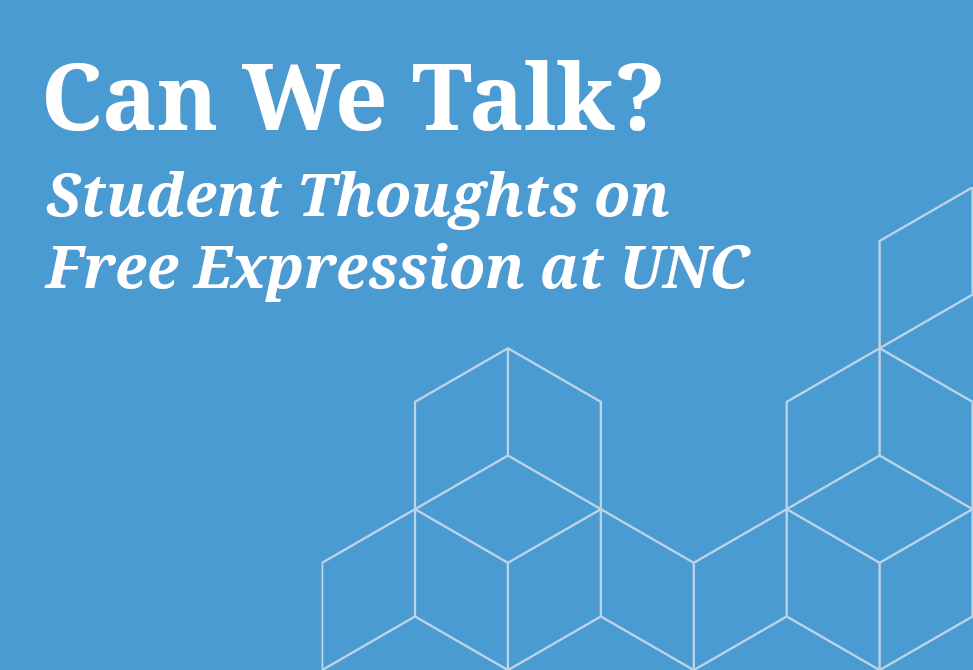
Join us on September 13 at 5:30pm to hear a panel of UNC students discuss free expression on campus and their thoughts on recently completed research on this topic by UNC professors. Thanks to the UNC Political Science Department for co-sponsoring.
Our student panelists are:
Aidan Buehler – philosophy and economics, 2024Nathan Gibson – political science, 2023
Cho Nikoi – history, 2023
Maddux Vernon – political science and peace, war, & defense, 2025
The event will be moderated by Kenan-Flagler Business School Professor of the Practice of Marketing Mark McNeilly, coauthor of the recently published study, “Free Expression and Constructive Dialogue at the University of North Carolina at Chapel Hill."
This hybrid event will be hosted in Fetzer Hall in Room 109 and livestreamed on Zoom.
Date: September 13, 2022
Times: 05:30 pm – 07:00 pm
Audience: Public Event
Venue: Fetzer Hall Rm 109; Online
Agora Fellows: Dialogue - How can UNC better serve its community?
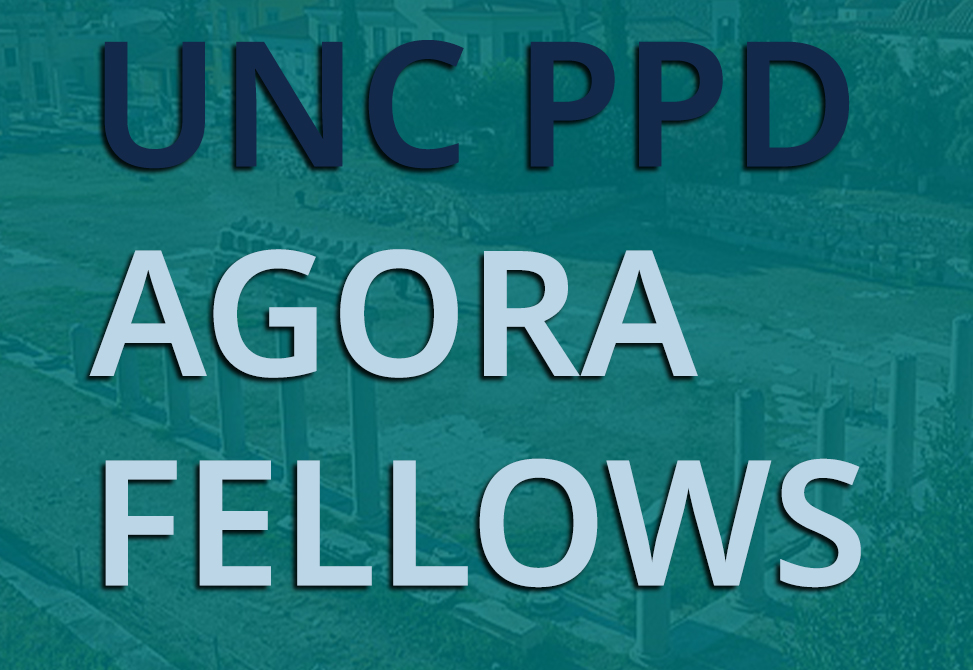
The Agora Fellows meet bi-weekly on Thursday evenings, 7:00 - 8:30 pm.
Interested in becoming a Fellow? Let us know here.
Interested in becoming a Fellow? Let us know here.
Agora Fellows: Debate - Should Congress abolish the filibuster?

The Agora Fellows meet bi-weekly on Thursday evenings, 7:00 - 8:30 pm.
Interested in becoming a Fellow? Let us know here.
Interested in becoming a Fellow? Let us know here.
Abbey Speaker Series: Journalism and Democracy
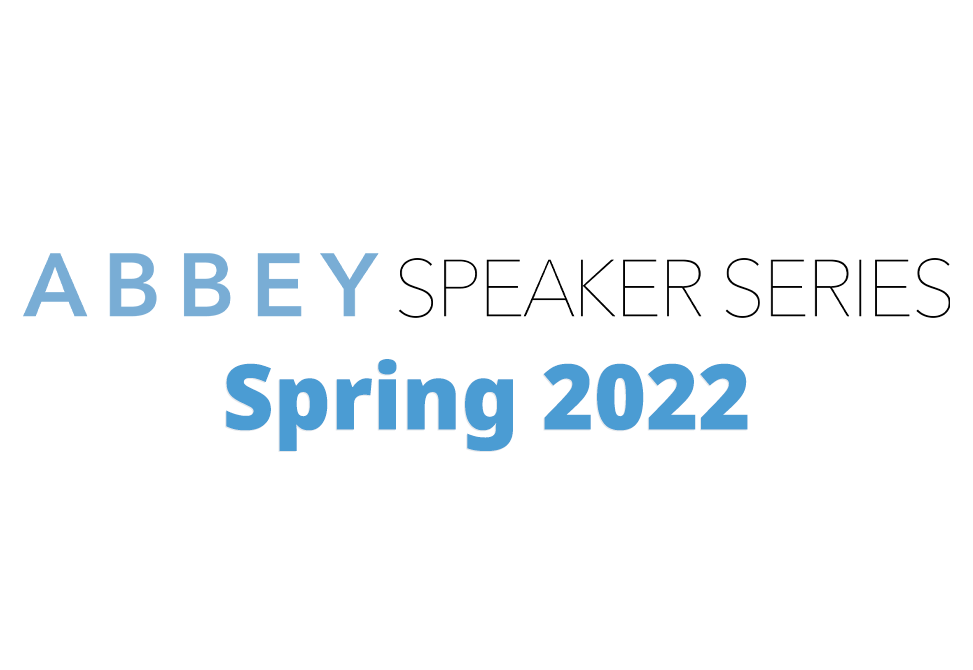
We often hear that democracy requires a free press, but what exactly is the role of the media in 21st-century America?
Should journalists strive to be objective? Is an internet connection the only requirement for the job? How has the decline of local news and the nationalization of media impacted American democracy? Can anything be done to reverse this trend?
On April 5th at 5:30 p.m., the UNC Program for Public Discourse, General Alumni Association, and Duke University's Polis: Center for Politics bring together journalists from local and national publications for Journalism and Democracy, a hybrid Abbey Speaker Series event about journalism's role in promoting and maintaining democratic values.
Should journalists strive to be objective? Is an internet connection the only requirement for the job? How has the decline of local news and the nationalization of media impacted American democracy? Can anything be done to reverse this trend?
On April 5th at 5:30 p.m., the UNC Program for Public Discourse, General Alumni Association, and Duke University's Polis: Center for Politics bring together journalists from local and national publications for Journalism and Democracy, a hybrid Abbey Speaker Series event about journalism's role in promoting and maintaining democratic values.
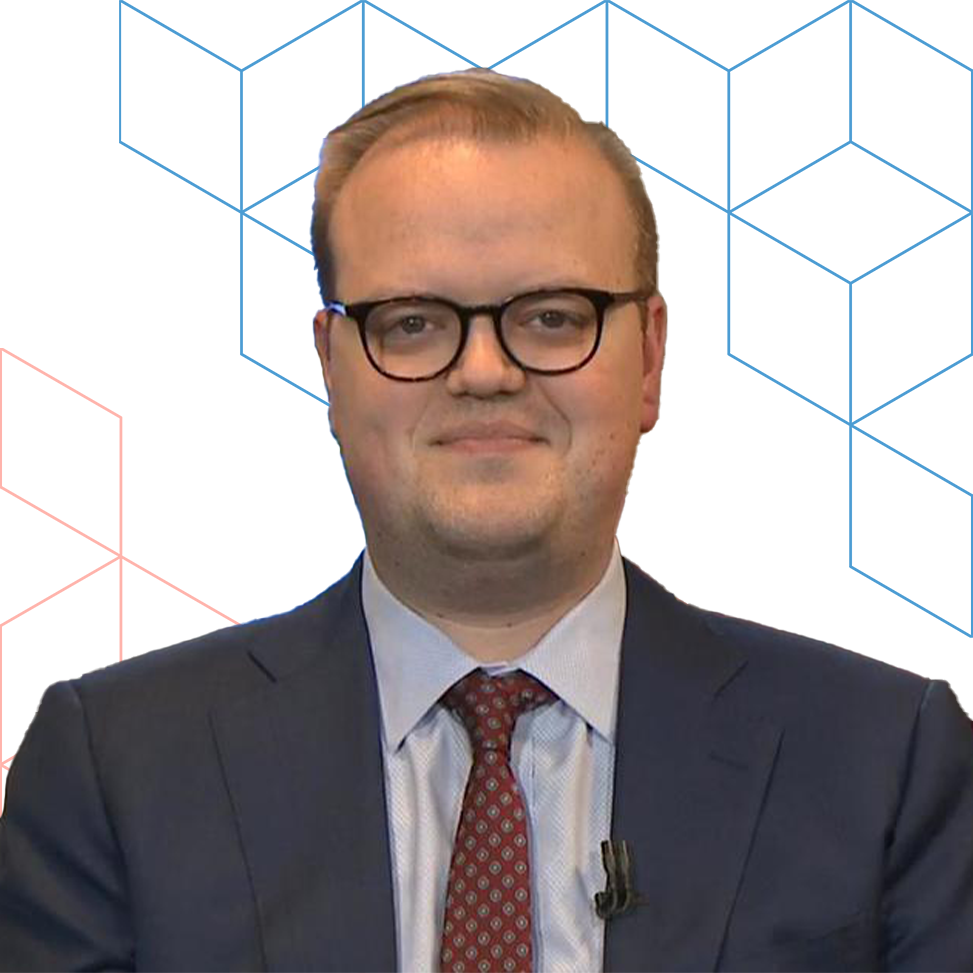
McKay Coppins is a journalist and author currently working as a staff writer at The Atlantic, covering journalism, religion, and Republican politics. Coppins has written for numerous publications, including Newsweek, The New York Times, and Buzzfeed News, where he covered the Romney and Trump presidential campaigns. In 2015, Coppins authored The Wilderness, which chronicled changes in the Republican party in the wake of the 2012 election. Recently, Coppins published an exposé detailing the purchase and closure of local newspapers by financial firms and the negative impact on the communities they serve.
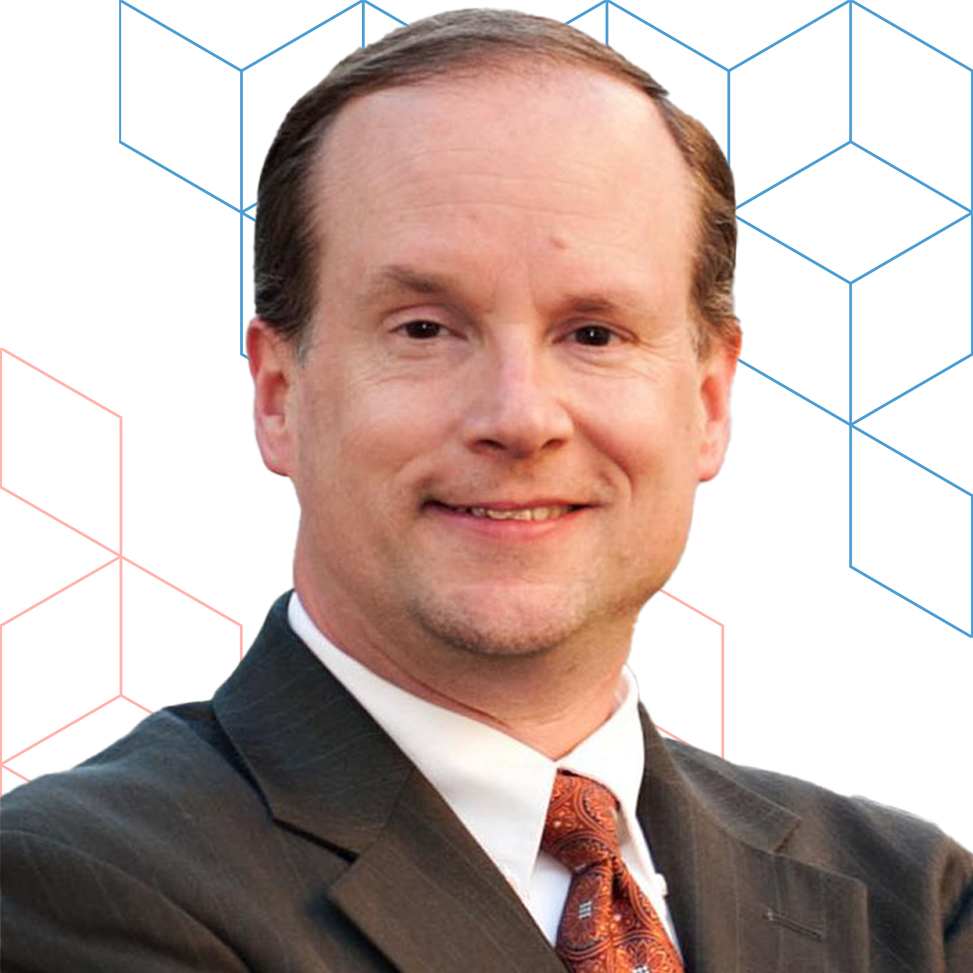
John Hood ’88 is president of the John William Pope Foundation and a syndicated columnist covering politics and public policy whose work appears regularly in newspapers servicing over 50 North Carolina communities. In addition to writing for national outlets such as The Wall Street Journal and USA Today, Hood has authored seven nonfiction books covering topics in advertising, business, political history, and public policy. Hood currently teaches at Duke University’s Sanford School of Public Policy and holds a bachelor’s in journalism from the University of North Carolina at Chapel Hill and a master’s in liberal studies from the University of North Carolina at Greensboro.
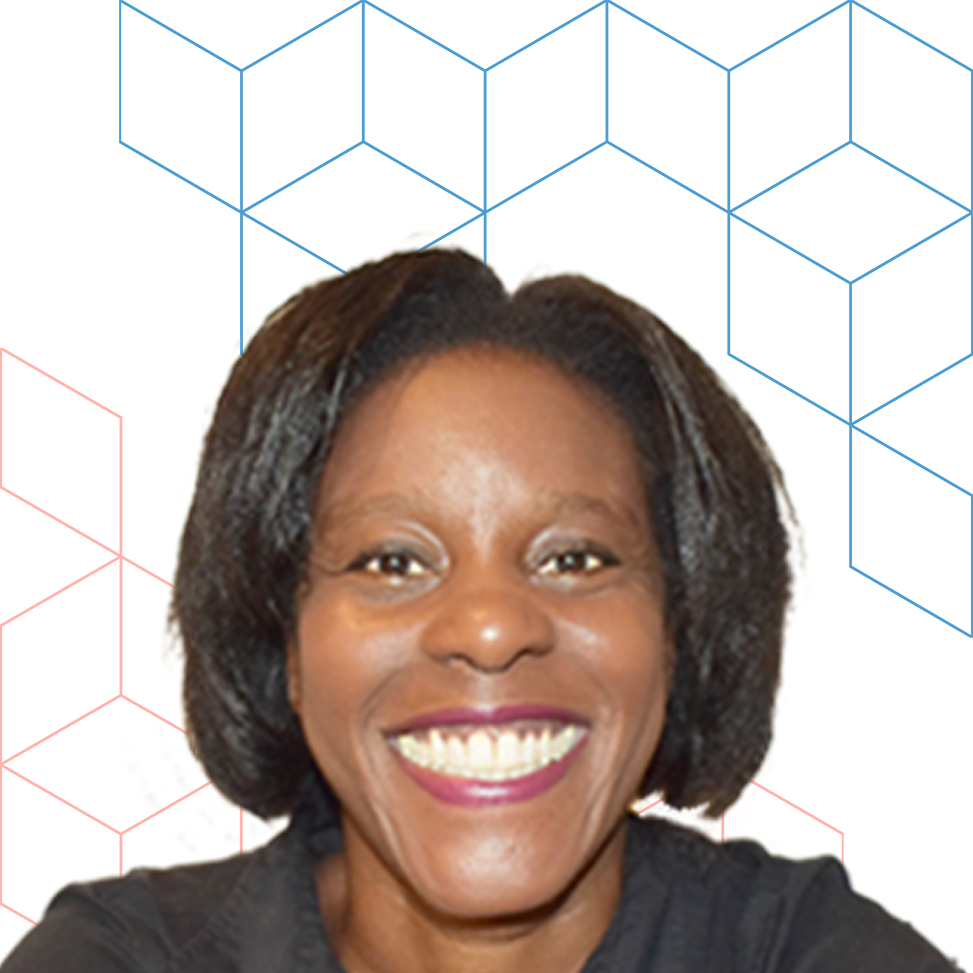
Nafari Vanaski is a freelance writer who worked in newspapers for 17 years. After graduating from Hampton University in 1999, Vanaski worked variously as a copy editor, news editor, and columnist for publications in southeastern North Carolina and Pittsburgh, including Star-News and the Pittsburg Tribune-Review. In 2016, Vanaski left the newspaper industry, later describing her negative experiences with editors when reporting on police brutality and how objectivity is often cited to avoid accurately recounting the realities of racism as a reason for her departure.
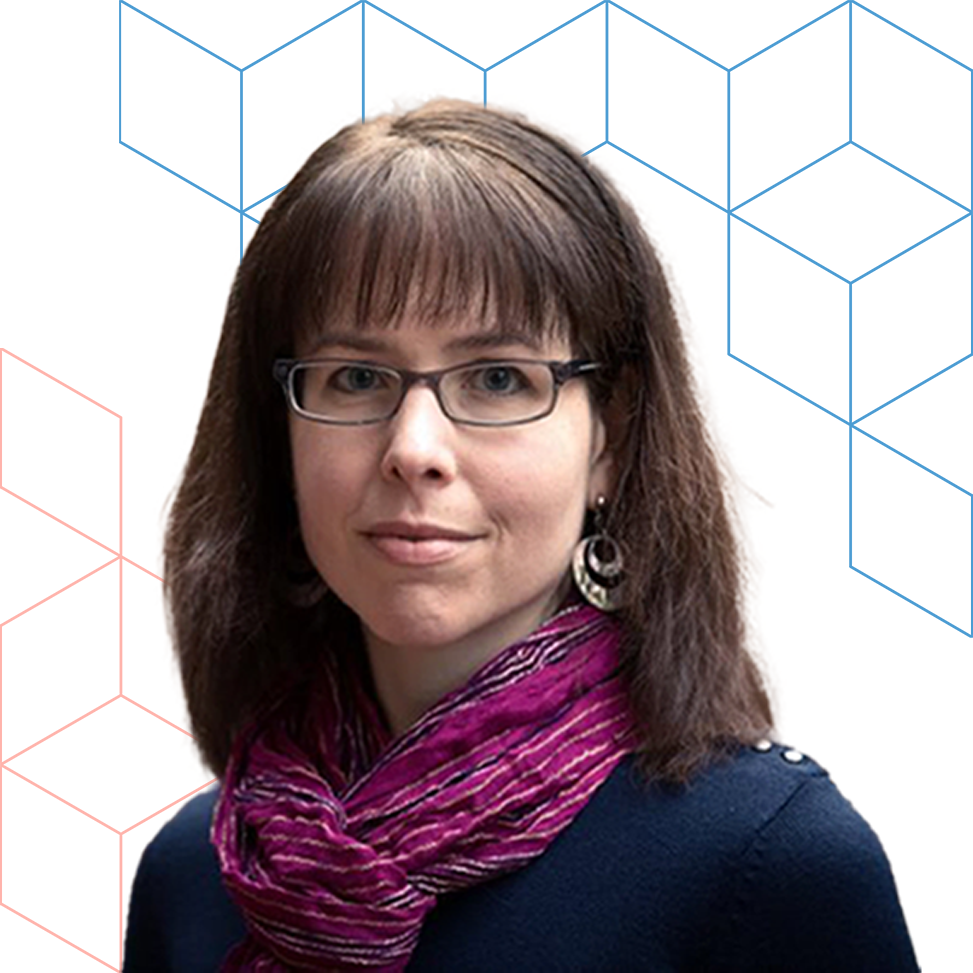
Event Moderator
Molly Worthen is a freelance journalist and an associate professor of history in the Department of History at the University of North Carolina at Chapel Hill. Her research focuses on North American religious and intellectual history, and she teaches courses in global Christianity, North American religious and intellectual culture, and the history of politics and ideology. Worthen is a contributing opinion writer for The New York Times and has written about religion and politics for The New Yorker, Slate, The American Prospect, Foreign Policy, and other publications. Her current book project focuses on the history of charisma in America.
Date: April 5, 2022
Times: 05:30 pm – 07:00 pm
Audience: Public Event
Venue: FedEx Global Education Center, Nelson Mandela Auditorium; Online
Agora Fellows: Debate - Should universities (be allowed to) practice affirmative action?

Understood broadly as practices that “permit the consideration of race, national origin, sex,or disability, along with other criteria, … to prevent the recurrence of discrimination in the future,” affirmative action policies have been actively struggled over since they were determined to be legal by the Supreme Court in 1978. Most recently, the Supreme Court agreed to hear two cases challenging affirmative action policies at Harvard and UNC. Depending on the Court’s ruling, such policies may be expanded, restricted, or even banned entirely. Such a moment inspires many questions. What should affirmative action entail, and how should it be practiced? To what extent has U.S. society changed since 1978, and do those changes demand changes in the law and university policy? More fundamentally, how should we define concepts like race and discrimination, and who determines which groups deserve protection?
Participants should read the following before the event: It's Time for an Honest Conversation about Affirmative Action.
The Agora Fellows meet bi-weekly on Thursday evenings, 7:00 - 8:30 pm.
Interested in becoming a Fellow? Let us know here.
Participants should read the following before the event: It's Time for an Honest Conversation about Affirmative Action.
The Agora Fellows meet bi-weekly on Thursday evenings, 7:00 - 8:30 pm.
Interested in becoming a Fellow? Let us know here.
Debating Public Policy Series: What To Do About China? Taiwan and the Future of US/China Relations
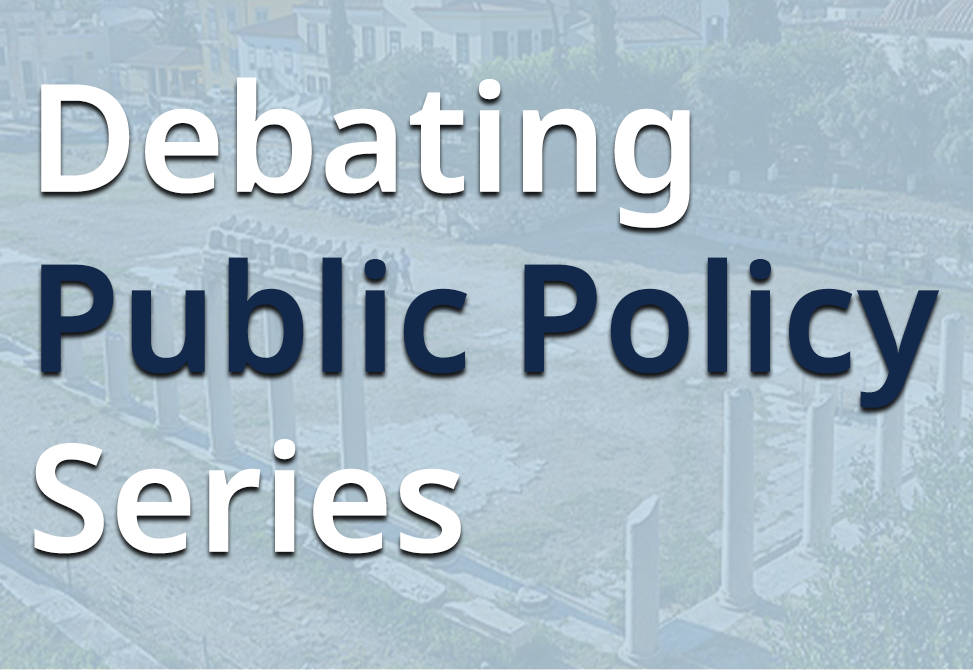
Watch here
For this Debating Public Policy Series event, we and the Carolina Asia Center host a dialogue between different perspectives on the best approach to U.S. relations with China, particularly regarding Taiwan. The discussion features interlocutors June Dreyer, Eric Huang, and Shelley Rigger, and is moderator by Klaus Larres.As always, we also invite audience questions to help round out what promises to be a robust discussion.
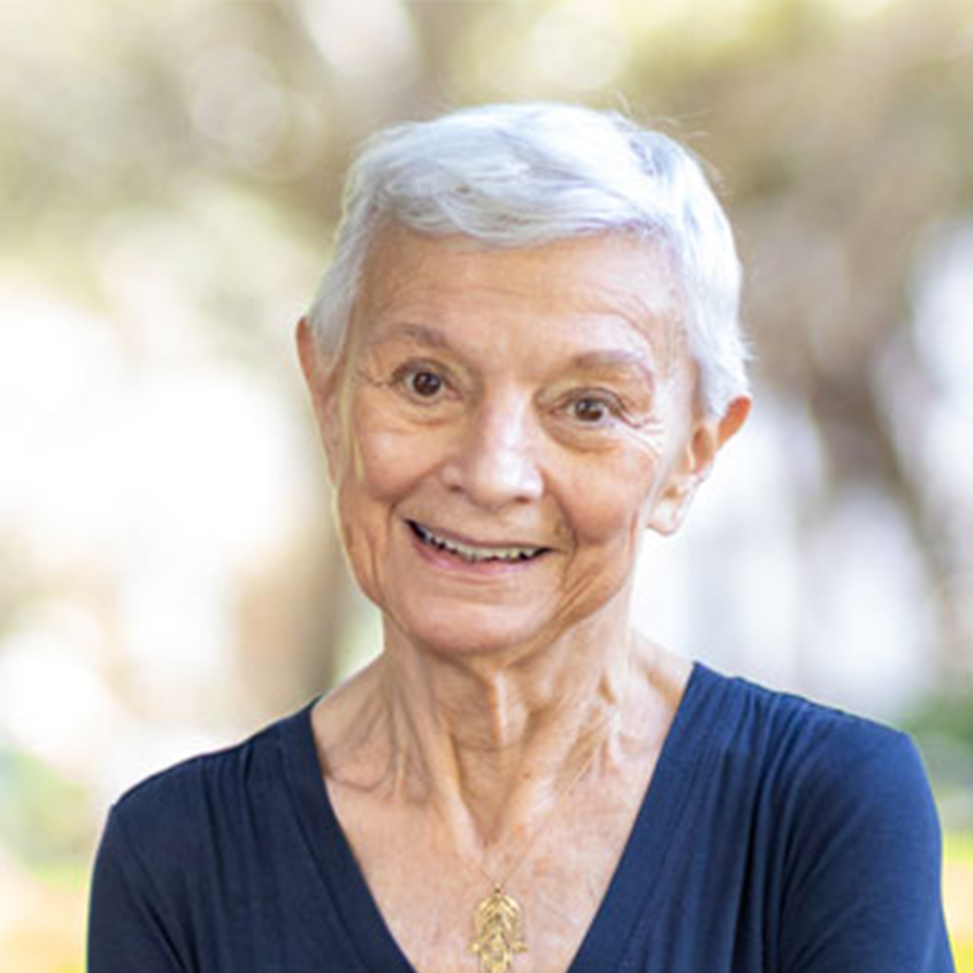
June Dreyer is Professor of Political Science at the University of Miami where she teaches courses on China, U.S. defense policy, and international relations. Dreyer is currently a senior fellow in the Asia Program of the Foreign Policy Research Institute and a member of the International Institute for Strategic Studies. Formerly senior Far East specialist at the Library of Congress, Dreyer has also served as Asia policy advisor to the Chief of Naval Operations and as commissioner of the United States-China Economic and Security Review Commission established by the U.S. Congress. Dreyer has written extensively about the Chinese military, Asian-Pacific security issues, China-Taiwan relations and Chinese foreign policy, and her most recent book, China’s Political System: Modernization and Tradition, provides historical context and analysis of the challenges facing China in these various sectors. Dreyer holds a bachelor’s in Political Science from Wellesley College and a master’s in East Asian Studies and a doctorate in Government and Far Eastern Languages from Harvard University.
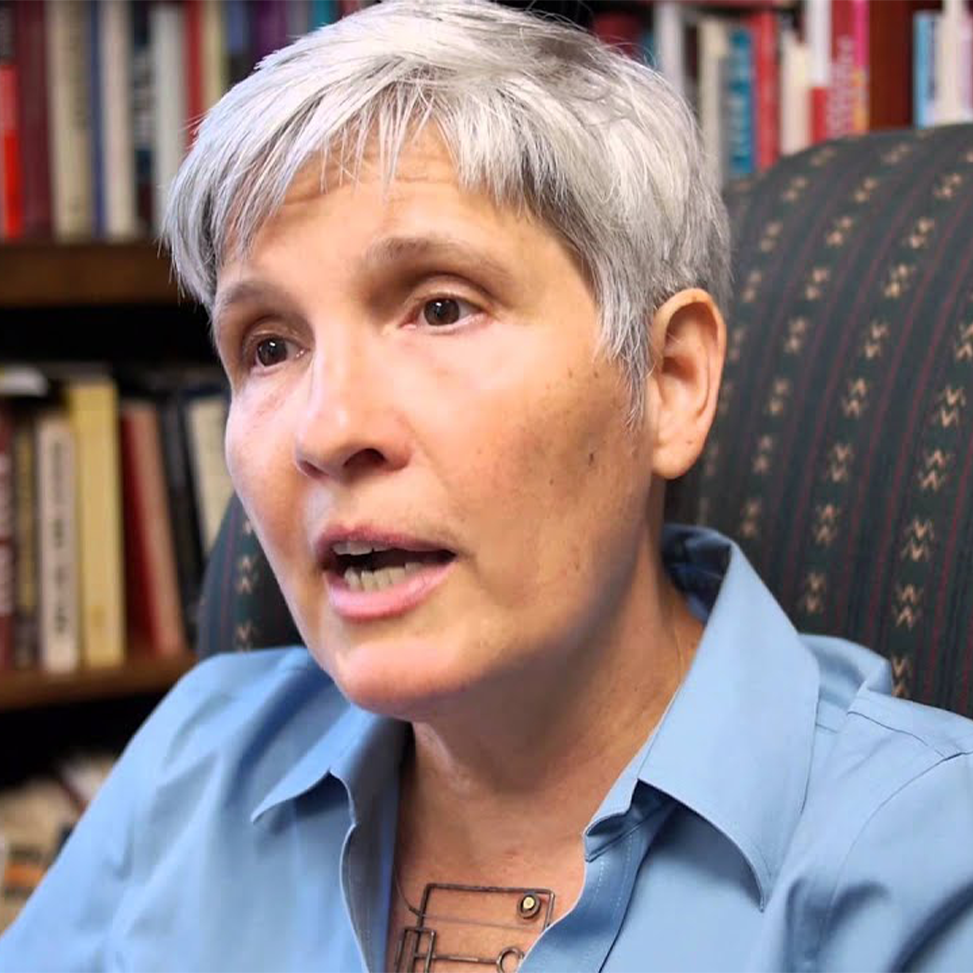
Shelley Rigger is Brown Professor of Political Science at Davidson College and a senior fellow in the Asia Program at the Foreign Policy Research Institute. Rigger has been studying and visiting Taiwan for almost four decades. She has served as a consultant for the US government on East Asian national security issues and has served as a visiting professor at National Chengchi University in Taipei and a visiting professor at Fudan University in Shanghai. She has written for a range of publications on Taiwan’s domestic politics and the issue of national identity in Taiwan-China relations. Rigger’s current research interests include the effects of cross-strait economic interactions on Taiwanese people’s perceptions of Mainland China. Her most recent book, The Tiger Leading the Dragon: How Taiwan Propelled China’s Economic Rise, explores the impact of these interactions and the ways Taiwanese firms and individuals altered Chinese business practices. Rigger holds a bachelor’s in Pubic and International Affairs from Princeton University and a doctorate in Government from Harvard University.
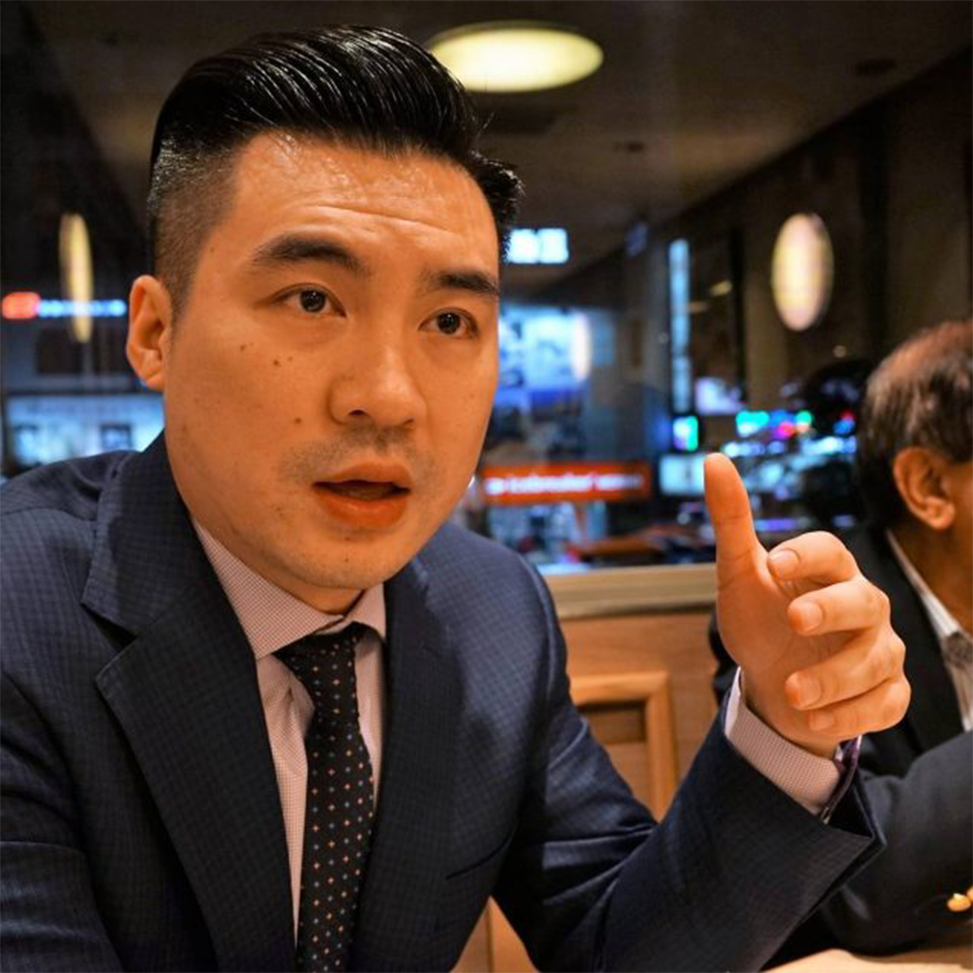
Eric Yu-Chua Huang is the Kuomintang (KMT) 's representative in Washington D.C. and formerly served as the party's spokesperson and deputy director of international affairs. Huang joined the KMT party headquarters in 2014 and served as the international spokesperson for the KMT's presidential candidate during Taiwan's 2016 and 2020 presidential election campaigns. He has also worked as a legislative aide for a KMT legislator representing a constituency in Taiwan's capital, Taipei City, where his portfolio included national security and foreign relations and constituent services and youth organizing. Huang previously served as a lecturer on international affairs at Tamkang University, a visiting scholar at Fudan University, and a non-residential research fellow at National Policy Foundation. Huang graduated from Johns Hopkins University with a master's degree in international relations; he earned his bachelor's degree in international relations at the University of Virginia.
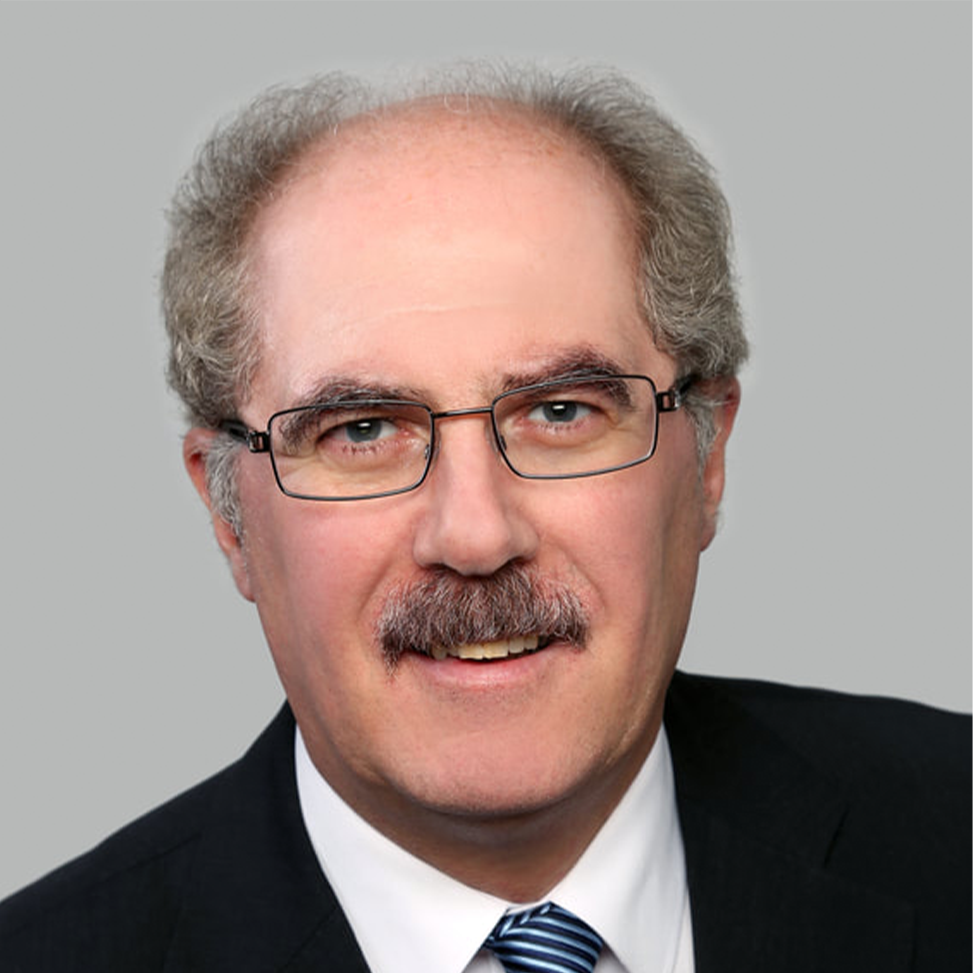
Event Moderator
Klaus Larres is the Richard M. Krasno Distinguished Professor of History and International Affairs and director of the Krasno Global Affairs & Business Council and Krasno Global Events Series at the University of North Carolina at Chapel Hill. His focus is the global politics of the U.S., China, Germany & the European Union, and the United Kingdom. Larres recently served as a counselor and senior policy adviser at the German Embassy in Beijing, and previously served as a visiting professor at Tsinghua University in Beijing and a non-residential senior fellow at the Center for Transatlantic Relations at Johns Hopkins University’s School of Advanced International Studies in Washington, DC. His most recent book, Uncertain Allies: Nixon, Kissinger, and the Threat of a United Europe, examines the transatlantic relations during the Nixon era and the ways it informed the U.S.’ relationship with the European Union across the Bush, Obama, and Trump presidencies. Larres holds bachelor’s, master’s, and doctoral degrees from the University of Cologne.
Date: March 9, 2022
Times: 07:00 pm – 08:15 pm
Audience: Public Event
Venue: Zoom
Leading Controversial Conversations: Teaching Argumentation and Debate
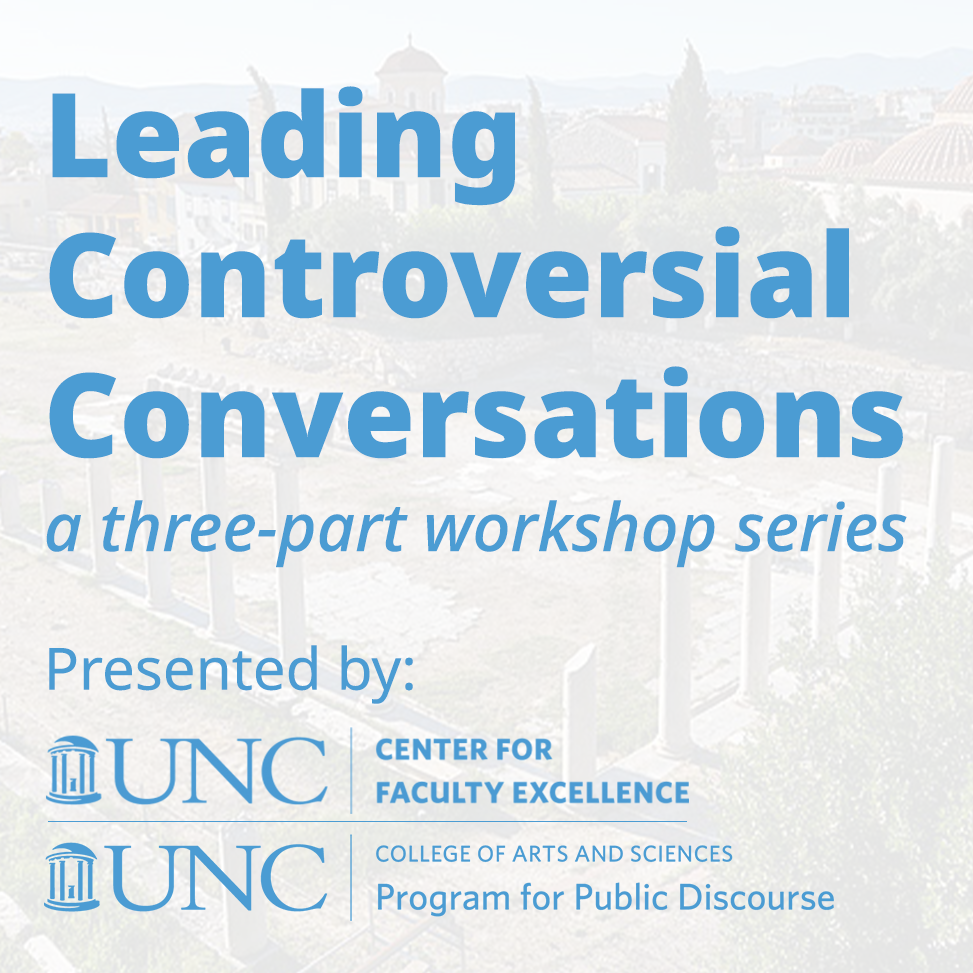
Register here through the Center for Faculty Excellence
This semester, the Center for Faculty Excellence and the Program for Public Discourse invite UNC faculty to participate in a series of three workshops designed to empower educators across the curriculum with the necessary tools to facilitate robust discourse across controversial terrain.This workshop is premised on the idea that there is often no way around difficult discussions in the classroom: the only way is through them. The workshop suggests strategies and concrete activities for encouraging students to take argumentative risks and be open to comparatively charitable exchange on the basis of evidence, all with the goal of fostering a productive culture of argument at UNC.
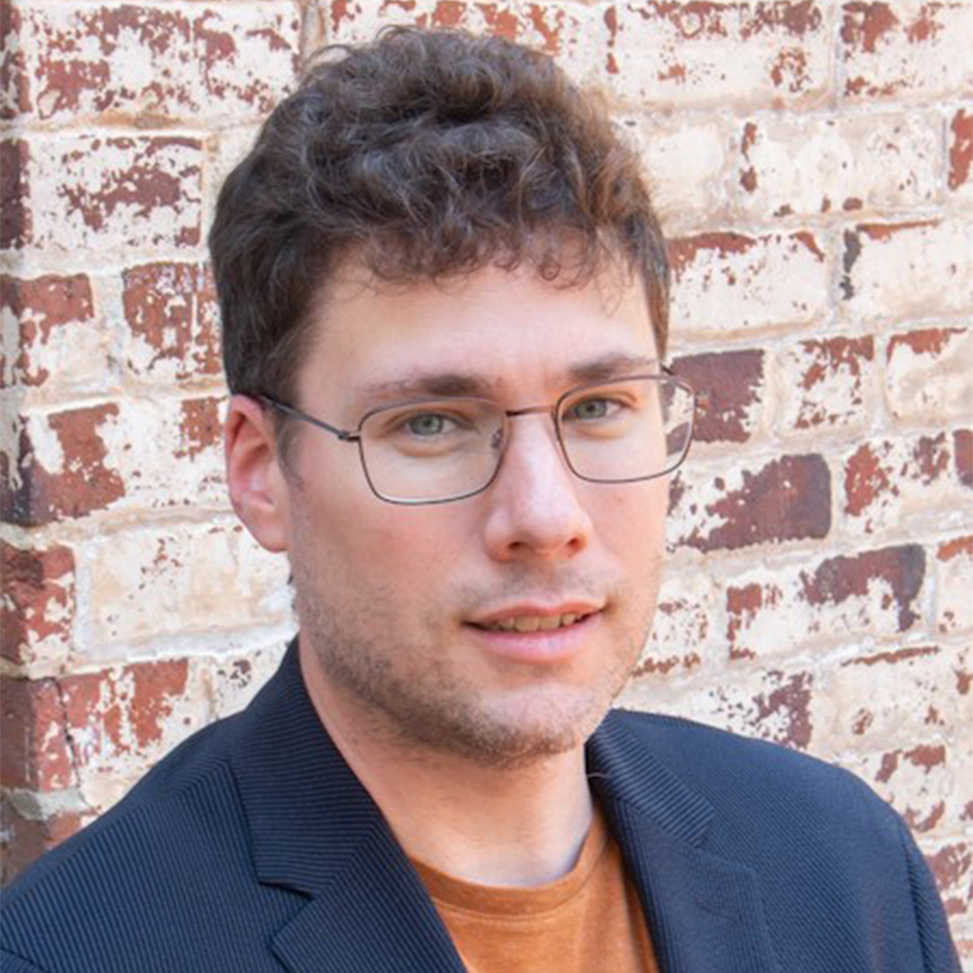
Event Moderator
Kevin Marinelli serves as Executive Director of the Program for Public Discourse and teaches in the Department of Communication. He teaches courses in rhetorical studies, and his scholarship centers on public argument. He has published essays in Rhetoric Society Quarterly and Argumentation and Advocacy, including his most recent essay on the emergence of Black Lives Matter. Kevin also leads the Agora Fellows, a group of undergraduate students committed to the study and practice of public discourse in contemporary democracy. Currently, Kevin is investigating practices of rhetorical citizenship.
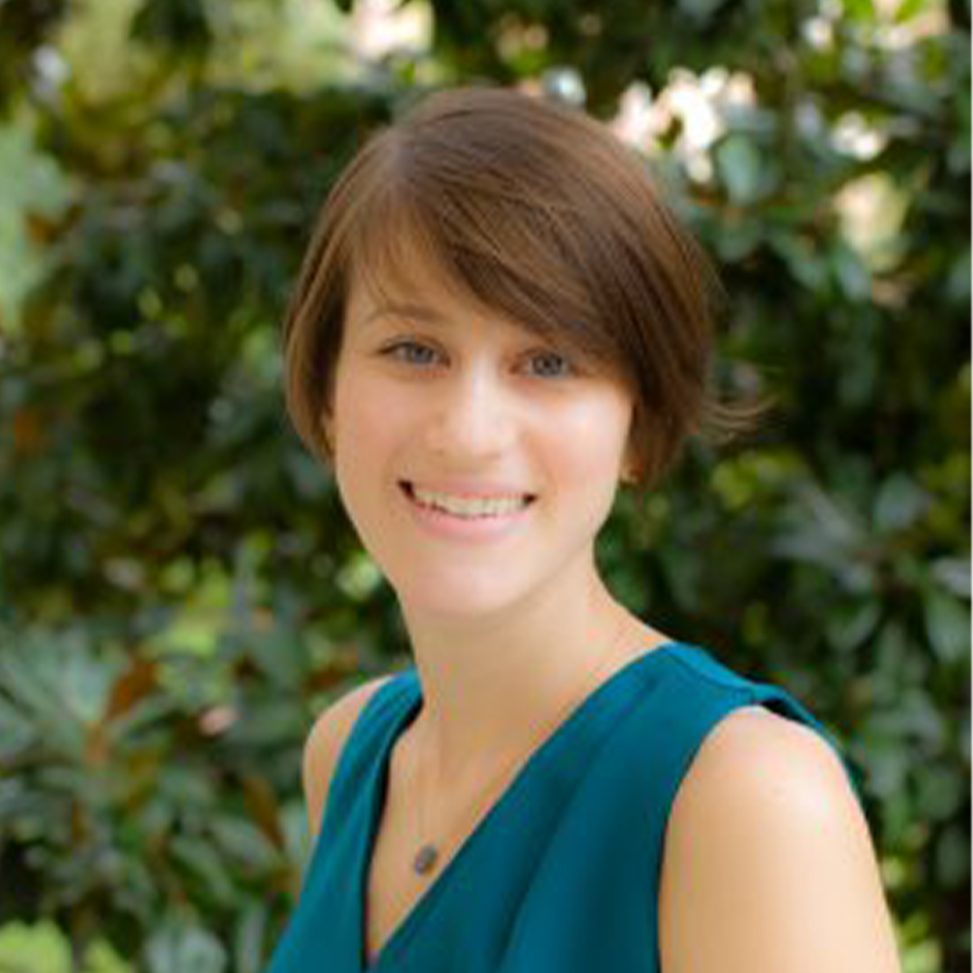
Emily Boehm is a PPD Faculty Affiliate and an educational developer and evolutionary biologist working with faculty members to bring active and inclusive learning methods to their classrooms, leading the CFE’s initiatives for faculty new to UNC. She also serves as the co-facilitator for the Faculty Administrator Development Program.
Date: March 8, 2022
Times: 03:00 pm – 04:15 pm
Audience: UNC Faculty
Venue: Center for Faculty Excellence, Online
Agora Fellows: Dialogue - Russian Invasion of Ukraine

On February 24th Russia invaded neighboring Ukraine following multiple assurances by Russian leadership that it would not do so. This action can be viewed as the latest escalation in a conflict dating back to a Ukrainian revolution in 2014, or more broadly as a new entry in the geopolitical struggle between East and West. At its heart, however, it is a moment of extreme violence and an existential crisis for the people in Ukraine and the surrounding region.
The United States and other NATO countries have leveraged economic sanctions against Russia but face criticism for doing too little. Others argue that there is hypocrisy inherent to any action the U.S. and its allies might take against Russia. Russian leadership, for its part, views Ukraine as a threat to its ability to maintain its own security.
This convening of the Agora Fellows will be discussing this event in order to meaningfully meet the Program for Public Discourse’s mission to “strengthen students’ capacities for public discourse, enabling them to serve as better citizens, civic leaders, and stewards of our democracy.” Whether you have strong feelings regarding potential responses the U.S. might take, or just want to learn more about what’s going on, we hope you will join us.
The Agora Fellows meet bi-weekly on Thursday evenings, 7:00 - 8:30 pm.
Interested in becoming a Fellow? Let us know here.
The United States and other NATO countries have leveraged economic sanctions against Russia but face criticism for doing too little. Others argue that there is hypocrisy inherent to any action the U.S. and its allies might take against Russia. Russian leadership, for its part, views Ukraine as a threat to its ability to maintain its own security.
This convening of the Agora Fellows will be discussing this event in order to meaningfully meet the Program for Public Discourse’s mission to “strengthen students’ capacities for public discourse, enabling them to serve as better citizens, civic leaders, and stewards of our democracy.” Whether you have strong feelings regarding potential responses the U.S. might take, or just want to learn more about what’s going on, we hope you will join us.
The Agora Fellows meet bi-weekly on Thursday evenings, 7:00 - 8:30 pm.
Interested in becoming a Fellow? Let us know here.
